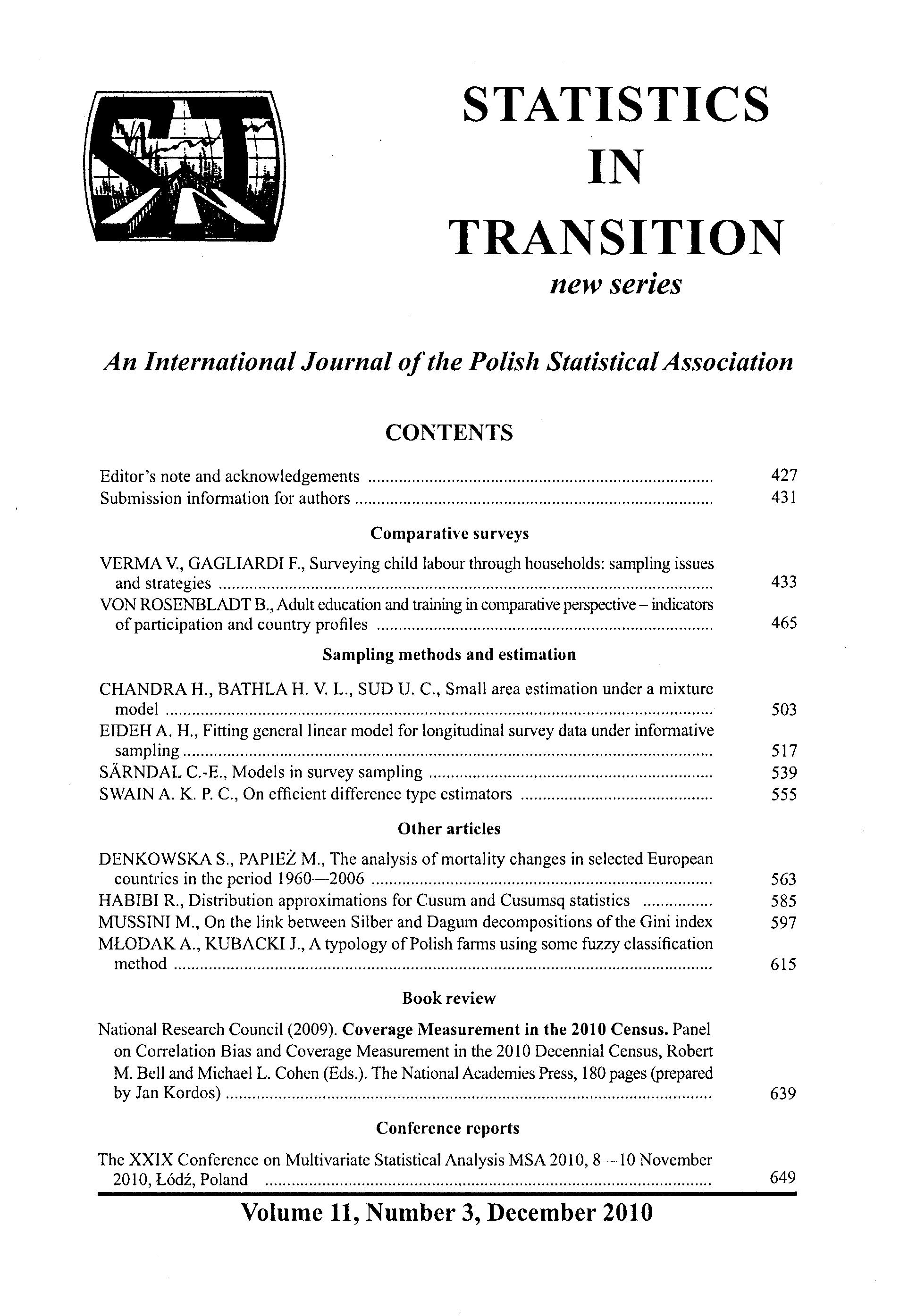ARTICLE
ABSTRACT
Lack of data has been a serious deficiency for comparative research on adult learning until recently. The present paper explores new opportunities based on the European Adult Education Survey (AES). It argues that general indicators of participation in adult education and training must be complemented by more specific indicators revealing sectoral structures and behavioural patterns within the adult learning system. AES as a subject-specific survey can help to understand better "what is behind" a general level of participation in adult learning, as provided in other statistics. Country variations are explored across a set of 16 European countries.
KEYWORDS
Adult education; adult learning; continuing vocational training; international indicators; comparative research
REFERENCES
AES International Workshop (2009), 9-10 December 2009 in Berlin. Documentation, Munich: TNS Infratest.
BOATENG, SADIQ KWESI (2009): Significant country differences in adult learning. Eurostat, Statistics in Focus 44/2009.
COMMISSION OF THE EUROPEAN COMMUNITIES (2009): Progress towards the Lisbon objectives in education and training. Indicators and benchmarks 2009. Commission Staff Working Document, SEC(2009) 1616 final.
COMMISSION OF THE EUROPEAN COMMUNITIES (2007a): Delivering lifelong learning for knowledge, creativity and innovation. Draft 2008 joint progress report of the Council and the Commission on the implementation of the „Education & Training 2010 work program”, {SEC(2007) 1484}.
COMMISSION OF THE EUROPEAN COMMUNITIES (2007b): Progress towards the Lisbon objectives in education and training. Indicators and benchmarks 2007. Commission Staff Working Document, SEC(2007) 1284.
COUNCIL OF THE EUROPEAN UNION (2009): Council conclusions on a strategic framework for European cooperation in education and training ("ET 2020"). Brussels, May 2009.
EUROSTAT (2006): Classification of learning activities - Manual. Luxembourg.
GNAHS, DIETER/ KUWAN, HELMUT/ SEIDEL, SABINE (ed.)(2008): Weiterbildungsverhalten in Deutschland. Band 2: Berichtskonzepte auf dem Prüfstand. Bielefeld: wbv.
LEMAN, STEVE (2009): Role of the AES in the United Kingdom. In: AES International Workshop (2009).
LÖFGREN, JOHAN/ SVENNING, ANDREAS (2009): Paper on the AES pilot. In: AES International Workshop (2009).
MÜLLER, WALTER/ KOGAN, IRENA (2010): Education. In: Immerfall, Stefan/ Therborn, Göran (ed.): Handbook of European Societies: Social Transformations in the 21st Century. New York: Springer, pp. 217-289.
MÜLLER, WALTER/ JAKOB, MARITA (2008): Qualifications and the Returns to Training Across the Life Course. In: Mayer, Karl-Ulrich/ Solga, Heike (ed.): Skill Formation. New York: Cambridge, pp. 126-172.
O’CONNELL, PHILIP/ JUNGBLUT, JEAN-MARIE (2008): What Do We Know about Training at Work? In: Mayer, Karl-Ulrich/ Solga, Heike (ed.): Skill Formation. New York: Cambridge, pp. 109-125.
OECD (2005): Education at a Glance. OECD Indicators 2005. Paris.
OECD (2006): Education at a Glance. OECD Indicators 2006. Paris.
OECD (2010): Education at a Glance. OECD Indicators 2010. Paris.
ROSENBLADT, BERNHARD VON/ BILGER, FRAUKE (2008): Weiterbildungsverhalten in Deutschland. Band 1. Berichtssystem Weiterbildung und Adult Education Survey 2007. Bielefeld: wbv.
ROSENBLADT, BERNHARD VON (2009): Adult education in comparative perspective - understanding differences across countries. Research paper, Munich: TNS Infratest.
SORVILLO, MARIA-PIA (2009): Adult Learning in the 2009 Progress Report. In: AES International Workshop (2009).
STENBERG, ANDERS (2009): Upgrading the Low Skilled: Is Public Provision of Formal Education a Sensible Policy? Research paper, Stockholm University.
